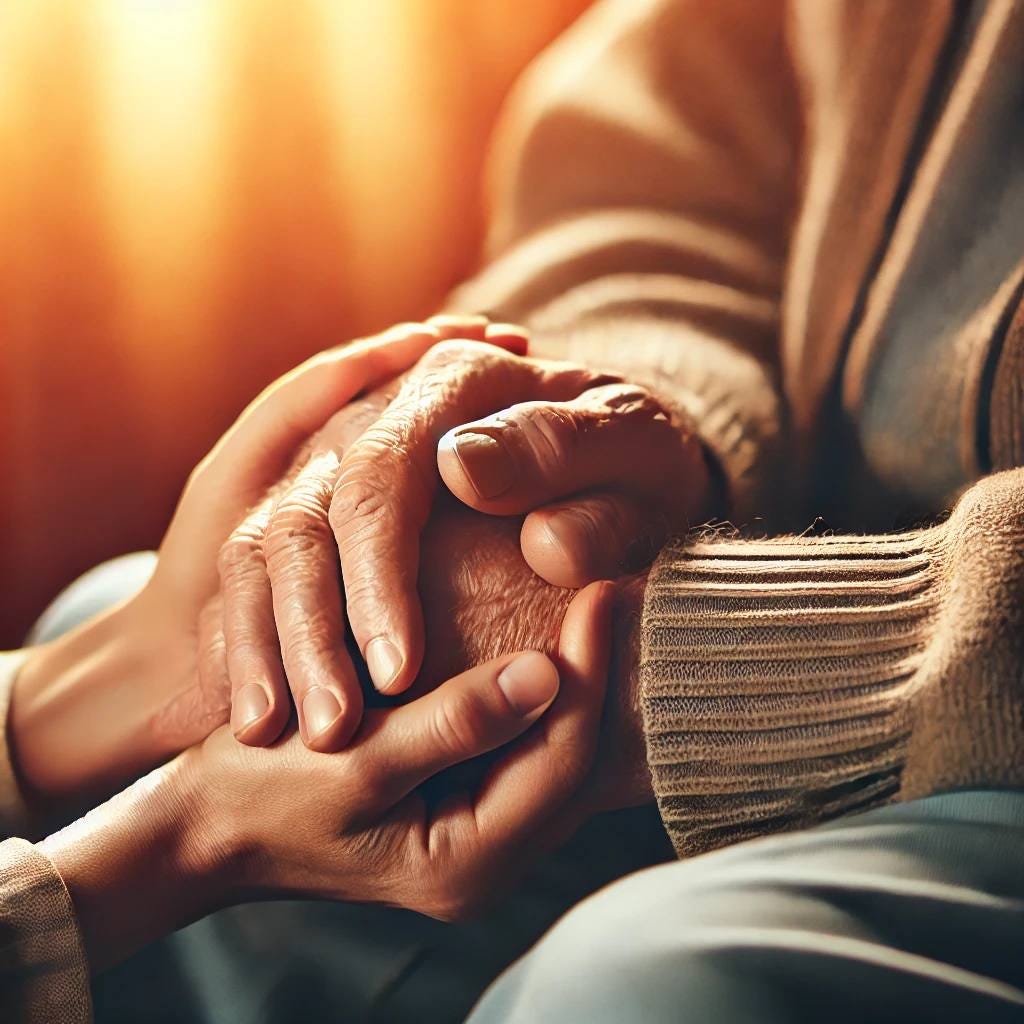The Sanctity of Life and the Dangerous Path Toward Assisted Suicide
As society progresses toward a more secular worldview, we are witnessing a shift in the way we perceive human life and suffering. With the increasing legalisation of policies such as abortion and assisted suicide, we must ask ourselves: What are we sacrificing in our pursuit of autonomy and convenience? Are we moving toward a society founded on compassion, mercy, and love, or are we embracing a self-centered, narcissistic ethos that undermines the very sanctity of life?
The Dangers of a Secular Society
In our journey away from faith and spiritual guidance, we have grown increasingly disconnected from the values that once protected the weak and vulnerable. Centuries of Christian teachings, which upheld the sanctity of life and the dignity of every individual, have become sidelined in favour of a more individualistic and secular mindset. This shift is not just theoretical; it has tangible consequences. We have legalised the destruction of the unborn, and now, the conversation is turning to the elderly and the sick, those whose lives are deemed "not fit for purpose."
The justification for such measures is often framed as compassion—a way to end suffering. But is it truly compassionate to end a life prematurely? Or is this simply a cost-effective way for governments to solve a complex issue, one that fails to address the real needs of vulnerable individuals?
The Moral Cost of Assisted Suicide
In the case of assisted suicide, we see a society that has normalised the idea of "self-imposed" death as a solution to suffering. Rather than investing in palliative care and long-term support systems, the government’s response seems to be one of expediency. Assisted suicide is presented as a way to “end suffering” with the pretence of compassion. However, this misses the deeper moral issue: human life is not ours to take, and our value as human beings is not contingent upon our physical capabilities or productivity.
In the eyes of many faith traditions, including Islam, assisted suicide is forbidden. The Holy Quran reminds us of the sacred nature of life and the divine process through which we are created.
As stated in the Quran, Chapter 23, Surah Mu’minun (Chapter of The Believers) Verse 14: "Then We made the sperm-drop into a clinging clot, and We made the clot into a lump [of flesh], and We made [from] the lump, bones, and We covered the bones with flesh; then We developed him into another creation. So blessed is Allah, the best of creators."
This verse highlights the intricacy and sacredness of human life, a life that is a divine creation. To deny or end it prematurely is seen as an affront to the Creator’s will.
A Reflection on Human Nature
It is crucial to recognise that we, as humans, are subject to the inevitability of aging and death. These are natural aspects of our existence. The desire to defy or eliminate death is a longstanding human dream. However, in our attempts to prolong life or escape its limitations, we risk losing sight of the gift of life itself.
Leon Kass, in his reflections on the human condition, suggests that instead of trying to outsmart death, we should accept and appreciate the life we have been given. Rather than viewing life as something to be controlled or discarded at will, we should embrace it with gratitude, even in its most challenging moments.
The idea of "playing God," of deciding who deserves to live and who should die, is a dangerous and fraught path. It can lead to profound moral decay, as it shifts our focus away from compassion and toward self-interest. In this environment, the oppressed are often those who are most vulnerable—the elderly, the sick, and the unborn.
The Call to Reaffirm Sacred Laws
As we continue down this path of secularisation, we must ask: What’s next? Having already violated the sanctity of life with the acceptance of abortion, will we next justify the euthanasia of the sick and elderly? Will we condone the removal of the weak and vulnerable from society, deeming them unworthy of life simply because they no longer meet a certain standard of productivity?
The erosion of our sacred laws and values places us on a dangerous trajectory. The very principles that were established to safeguard life and protect the vulnerable are now being dismantled, one by one. Once we accept the dehumanisation of one group, it becomes easier to justify the oppression of others.
The Importance of Faith and Compassion
In contrast to a godless society that seeks to control life and death, faith offers a different vision. God's laws are designed to protect us from our own egos, selfishness, and arrogance. These laws exist not to limit our freedom, but to safeguard our dignity and the sanctity of life.
The wisdom of faith traditions, such as Islam, provides a clear framework for how we should view life and death. Life is a sacred gift, and it is not for us to take or end at will. Our responsibility is to care for one another, to offer compassion and mercy, and to support the vulnerable with dignity and love. This is the true path to healing and peace.
Conclusion: Wake up, Preserve Life
The legalisation of assisted suicide is a timely reminder of the dangerous path we are on. If we allow this practice to become normalised, we risk turning society into a cold, utilitarian place where life is valued only for its utility, and the most vulnerable among us are discarded. It is not too late to change course. Now is the time to wake up, rise up, and speak out against this atrocity before it is too late. We must reaffirm our commitment to the sacred laws that protect life and ensure that our society remains compassionate, merciful, and just for all.


